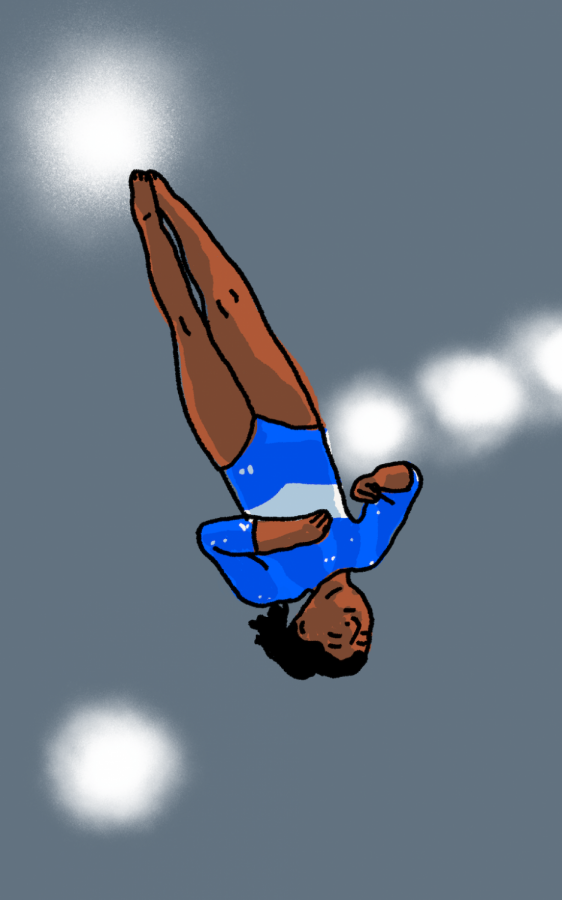Transcendent: Lakeside, Tokyo, and the Force of Recognition
From the start, it was obvious that this year’s Tokyo Olympics were going to be different. With the very justifiability of holding the Games in the middle of a pandemic being the subject of intense debate and with many prominent athletes divided over whether to attend, the leadup to Tokyo, like much of these past two years, has been anything but normal. In this regard, the Olympics themselves were no different; with viewership ratings in freefall and many athletic upsets, there was no shortage of stories to follow. Despite all this, however, it’s what took place off the competition floor that generated the largest headlines.
Simone Biles, often heralded as the greatest gymnast of all time, arguably came to Tokyo as the face of the Games. One of the most publicly recognized athletes there, Biles, 24, was widely expected to contend for the five gold medals in artistic gymnastics after what was already an impressive haul in 2016. But while she got off to a good start, finishing atop the preliminary standings, Biles shockingly withdrew from the team all-around final (and later the individual all-around, floor, vault, and uneven bars competitions) after stumbling on the vaults during her first rotation. Originally reported as a medical issue, Biles later cited mental health concerns and the “twisties” – instances where gymnasts are unable to control themselves in the air – for her withdrawal.
This completely unexpected turn of events entirely changed the general discourse surrounding the Olympics. To see an athlete who has been so dominant for so long voluntarily step down was a moment that both revived a long-neglected conversation about the importance of athletes’ mental health and one that highlighted the tremendous pressure that athletes face.
While Biles’ withdrawal came as a shock, the pressure she experienced is no stranger to many athletes, including those here at Lakeside. With a robust athletics program serving as a core part of Lakeside’s identity, the stress that athletes confront daily can have consequences on their well-being and Lakeside’s environment. In athletics, pressure often acts like a double-edged sword: while it motivates greater determination and resilience, too much of it can be detrimental to self-esteem. Striking a balance between the two can be challenging for athletes; as one student comments, holding oneself to high expectations generates internal pressure, which both “[causes them] to grow more” while also “[casting] doubt on [their] abilities at times”. The dual consequences of pressure are strengthened by the athletic environment at Lakeside. As another student notes, “the coaches are all very nice and supportive”, but sometimes finishing later than others on their team affects their mental health negatively.
With mental health being an issue that has been more or less avoided by our society’s dominant culture, Lakeside is already a frontrunner in highlighting the importance of mental health in both academics and athletics. Both student athletes, who wish to remain anonymous, commend this acknowledgement. They also suggested some next steps that the Athletics department could take; in particular, they felt that emphasizing the fact that “an athlete’s mental health needs are as important as their physical health needs” would greatly serve to strengthen the impact of the message.
Whether at Lakeside or the Olympics, the spotlight on athletes’ mental health is undoubtedly growing brighter. Alongside many prominent athletes and former Olympians who have come out and spoken honestly about their mental health, Biles has ensured that this issue will no longer be out of the public eye. Even Biles herself has been surprised by how large and how positive the general reaction has been, tweeting that it had revealed to her “another side of gymnastics” that she hadn’t seen before. And through her actions, Simone Biles redefined her legacy from being a star gymnast to becoming a transcendent one: her withdrawal serves as a tremendous force that has eroded much of the rigid stigma surrounding these issues.
The Tokyo Olympics is symbolic of a world mending and coming back together, and as Lakeside returns to in-person school this fall, some degree of normalcy has been restored in our community as well. While it is crucial to realize that the world we are stepping back into has been fundamentally changed by the pandemic, perhaps the new emphasis we place on mental health can be a lasting outcome. For in our collective catharsis, a moment of pause, reflection, and renewal – as embodied by Biles and our Lakeside athletes – may be just what we need.

